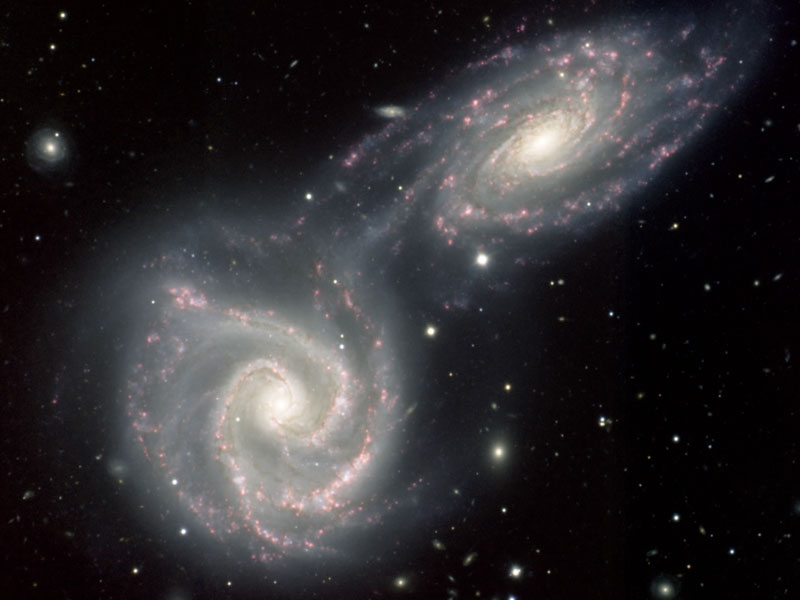Explanation: What will become of these galaxies? Spiral galaxies NGC 5426 and NGC 5427 are passing dangerously close to each other, but each is likely to survive this collision. Most frequently when galaxies collide, a large galaxy eats a much smaller galaxy. In this case, however, the two galaxies are quite similar, each being a sprawling spiral with expansive arms and a compact core. As the galaxies advance over the next tens of millions of years, their component stars are unlikely to collide, although new stars will form in the bunching of gas caused by gravitational tides. Close inspection of the above image taken by the 8-meter Gemini-South Telescope in Chile shows a bridge of material momentarily connecting the two giants. Known collectively as Arp 271, the interacting pair spans about 130,000 light years and lies about 90 million light-years away toward the constellation of Virgo. Quite possibly, our Milky Way Galaxy will undergo a similar collision with the neighboring Andromeda Galaxy in about five billion years.
1999 2000 2001 2002 2003 2004 2005 2006 2007 2008 2009 2010 2011 2012 2013 2014 2015 2016 2017 2018 2019 2020 2021 2022 2023 2024 2025 |
Yanvar' Fevral' Mart Aprel' Mai Iyun' Iyul' Avgust Sentyabr' Oktyabr' Noyabr' Dekabr' |
NASA Web Site Statements, Warnings, and Disclaimers
NASA Official: Jay Norris. Specific rights apply.
A service of: LHEA at NASA / GSFC
& Michigan Tech. U.
|
Publikacii s klyuchevymi slovami:
colliding galaxies - vzaimodeistvuyushie galaktiki - spiral'naya galaktika - Spiral'nye vetvi galaktik
Publikacii so slovami: colliding galaxies - vzaimodeistvuyushie galaktiki - spiral'naya galaktika - Spiral'nye vetvi galaktik | |
Sm. takzhe:
Vse publikacii na tu zhe temu >> | |
